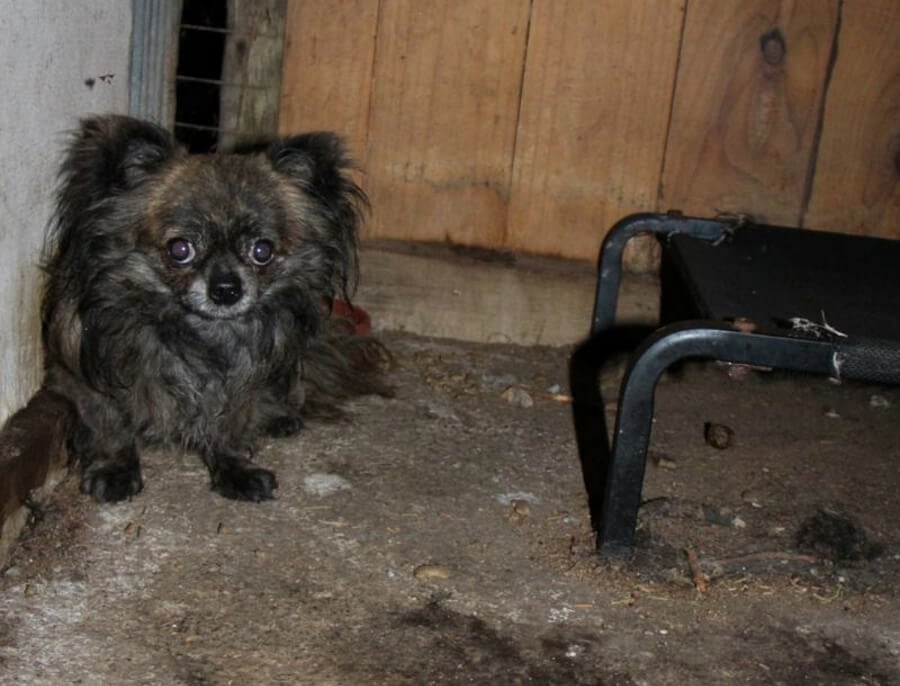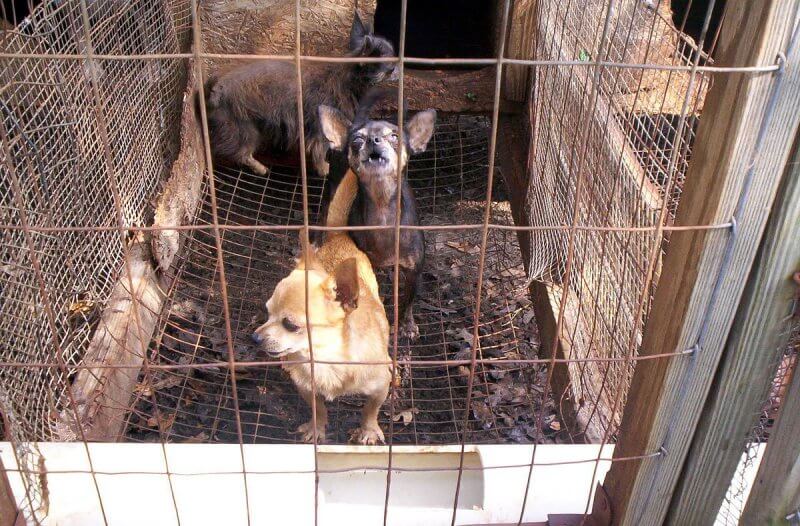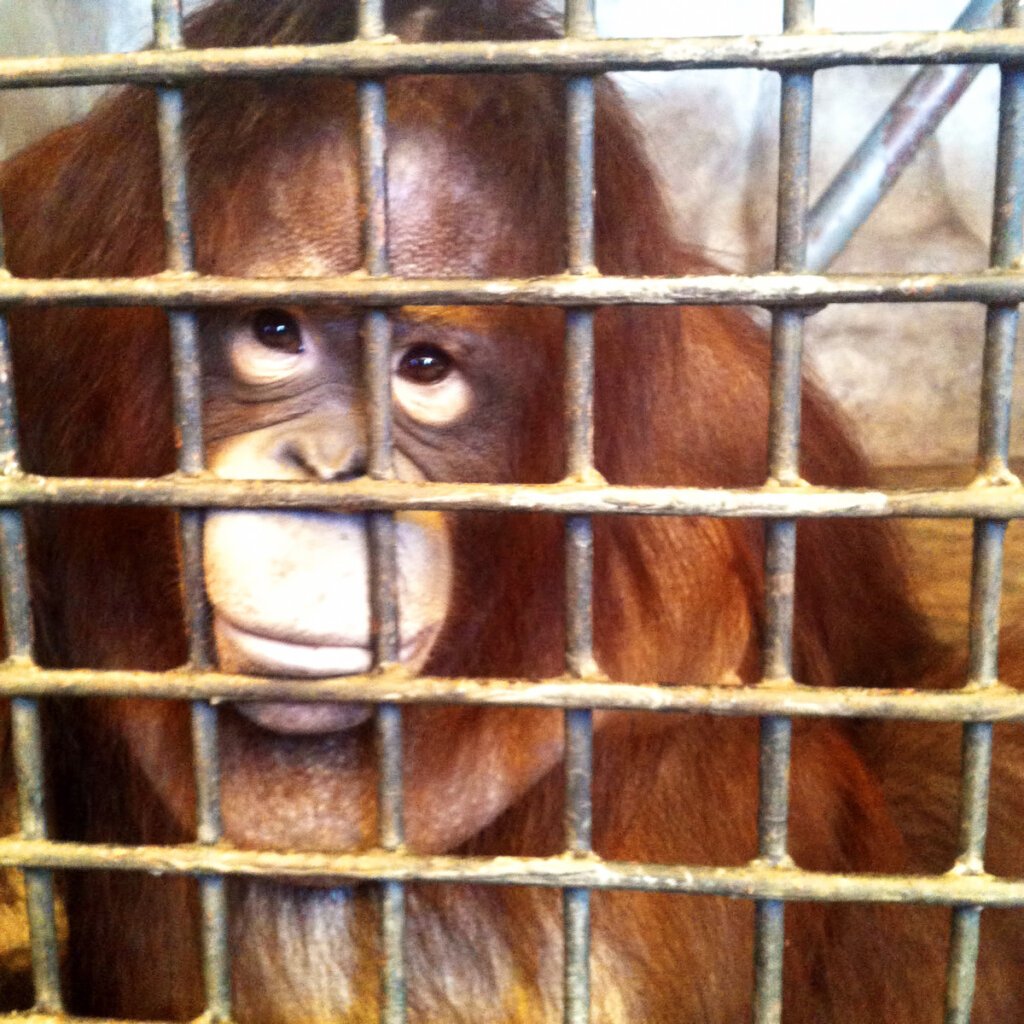Puppy farms are live-animal factories that hold anywhere from 20 to 1,000 mother dogs in horrendous conditions.
Dogs in these facilities are kept continually pregnant – sometimes from the age of only 6 months – until they become sick or unable to produce enough puppies to be profitable. Then, they’re often killed and replaced.
These farms are legal in Australia as long as the animals are given sufficient food, water, and shelter. What regulations do exist are inconsistent, insufficient, or ineffectively enforced. As a result, mothers and pups are often deprived of socialisation, given no exercise, and denied regular grooming or bathing.
Horrific Conditions
The dogs are confined to dark sheds and imprisoned in cages similar to but slightly larger than those used for hens on battery farms. They’re forced to sleep in their own urine and faeces, and the stench is almost unbearable. Throughout their incarceration, they never see daylight and may slowly go insane, pacing their enclosures and exhibiting repetitive types of behaviour.

Severe Health Risks
Dogs at these facilities may never receive the veterinary care that would offer them some small relief from their continuous pain and suffering. Their matted, urine-stained fur is a breeding ground for infection, and many contract chronic illnesses that either kill or permanently disable them.

Irresponsible breeding also leads to genetic issues. For many breeds, it’s important to make sure common conditions aren’t passed on to offspring. No such efforts are made on these farms, so many pups are born with hip dysplasia, skin conditions, overshot jaws, or heart murmurs. Left untreated, these conditions cause severe pain and can even prove fatal.
Heartbreak for Mothers and Trauma for Babies
When a mother dog gives birth, her litter is taken away within a few weeks, giving her little time to nurture her babies. Those pups who aren’t caged for breeding are sent to pet shops, quickly cleaned, and sold for hundreds of dollars to unknowing customers.
These animals may find it difficult to form social bonds and often shy away from humans or behave erratically. As a result, shelters frequently receive unwanted dogs who were born on puppy farms.
How to Help
Puppy farms not only give these vulnerable animals a bad start in life but also contribute to the growing homeless-animal crisis. Every puppy bred and sold by such facilities takes a place in a family that might have adopted an animal from a shelter. In Australia, over 200,000 healthy dogs and cats are euthanised each year because there aren’t enough good homes for them.
You can help stop this cruelty. If you have space in your home and your heart for a companion (or two), please, adopt from a shelter. Never buy animals from a pet shop or breeder – and always desex and microchip them.
Share this post with others, and be sure to support campaigns to abolish puppy farms.
Companion Animals:
Desexing FAQs | Breeders Kill Shelter Animals | Chained Dogs | Overpopulation Crisis
Help Animals in 2025: Renew Your PETA Membership!




